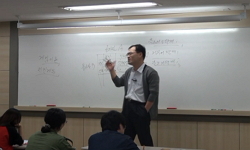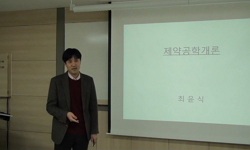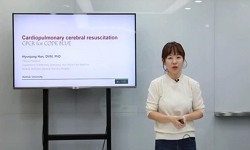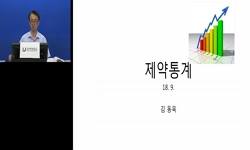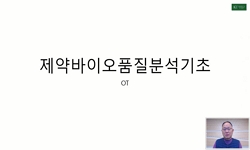Objective Determine differences between faculty, residents, and nurses regarding night shift preparation, performance, recovery, and perception of emotional and physical health effects. Methods Survey study performed at an urban university medical cen...
http://chineseinput.net/에서 pinyin(병음)방식으로 중국어를 변환할 수 있습니다.
변환된 중국어를 복사하여 사용하시면 됩니다.
- 中文 을 입력하시려면 zhongwen을 입력하시고 space를누르시면됩니다.
- 北京 을 입력하시려면 beijing을 입력하시고 space를 누르시면 됩니다.

Night shift preparation, performance, and perception: are there differences between emergency medicine nurses, residents, and faculty?
한글로보기https://www.riss.kr/link?id=A105960699
-
저자
John R. Richards (department of emergency medicine, University of California Davis Medical Center) ; Taylor L. Stayton (Department of Emergency Medicine, University of California Davis Medical Center) ; Jason A. Wells (Department of Emergency Medicine, University of California Davis Medical Center) ; Aman K. Parikh (Department of Emergency Medicine, University of California davis medical center) ; Erik G. Laurin (Department of Emergency Medicine, University of California Davis Medical Center)

- 발행기관
- 학술지명
- 권호사항
-
발행연도
2018
-
작성언어
English
- 주제어
-
등재정보
KCI등재
-
자료형태
학술저널
-
수록면
240-248(9쪽)
-
KCI 피인용횟수
0
- DOI식별코드
- 제공처
-
0
상세조회 -
0
다운로드
부가정보
다국어 초록 (Multilingual Abstract)
Objective Determine differences between faculty, residents, and nurses regarding night shift preparation, performance, recovery, and perception of emotional and physical health effects. Methods Survey study performed at an urban university medical center emergency department with an accredited residency program in emergency medicine. Results Forty-seven faculty, 37 residents, and 90 nurses completed the survey. There was no difference in use of physical sleep aids between groups, except nurses utilized blackout curtains more (69%) than residents (60%) and faculty (45%). Bedroom temperature preference was similar. The routine use of pharmacologic sleep aids differed: nurses and residents (both 38%) compared to faculty (13%). Residents routinely used melatonin more (79%) than did faculty (33%) and nurses (38%). Faculty preferred not to eat (45%), whereas residents (24%) preferred a full meal. The majority (>72%) in all groups drank coffee before their night shift and reported feeling tired despite their routine, with 4:00 a.m. as median nadir. Faculty reported a higher rate (41%) of falling asleep while driving compared to residents (14%) and nurses (32%), but the accident rate (3% to 6%) did not differ significantly. All had similar opinions regarding night shift-associated health effects. However, faculty reported lower level of satisfaction working night shifts, whereas nurses agreed less than the other groups regarding increased risk of drug and alcohol dependence. Conclusion Faculty, residents, and nurses shared many characteristics. Faculty tended to not use pharmacologic sleep aids, not eat before their shift, fall asleep at a higher rate while driving home, and enjoy night shift work less.
참고문헌 (Reference)
1 Trinkoff AM, "Work schedule characteristics and substance use in nurses" 34 : 266-271, 1998
2 Raj KS, "Well-being in residency: a systematic review" 8 : 674-684, 2016
3 Horne J, "Vehicle accidents related to sleep: a review" 56 : 289-294, 1999
4 Gu F, "Total and cause-specific mortality of U.S. nurses working rotating night shifts" 48 : 241-252, 2015
5 Manomenidis G, "The ‘switch on-switch off model’: strategies used by nurses to mentally prepare and disengage from work" 22 : 356-363, 2016
6 Handel DA, "The use of sleep aids among Emergency Medicine residents: a web based survey" 6 : 136-, 2006
7 Franke AG, "The use of caffeinated substances by surgeons for cognitive enhancement" 261 : 1091-1095, 2015
8 Scott LD, "The relationship between nurse work schedules, sleep duration, and drowsy driving" 30 : 1801-1807, 2007
9 Steele MT, "The occupational risk of motor vehicle collisions for emergency medicine residents" 6 : 1050-1053, 1999
10 Rollinson DC, "The effects of consecutive night shifts on neuropsychological performance of interns in the emergency department: a pilot study" 41 : 400-406, 2003
1 Trinkoff AM, "Work schedule characteristics and substance use in nurses" 34 : 266-271, 1998
2 Raj KS, "Well-being in residency: a systematic review" 8 : 674-684, 2016
3 Horne J, "Vehicle accidents related to sleep: a review" 56 : 289-294, 1999
4 Gu F, "Total and cause-specific mortality of U.S. nurses working rotating night shifts" 48 : 241-252, 2015
5 Manomenidis G, "The ‘switch on-switch off model’: strategies used by nurses to mentally prepare and disengage from work" 22 : 356-363, 2016
6 Handel DA, "The use of sleep aids among Emergency Medicine residents: a web based survey" 6 : 136-, 2006
7 Franke AG, "The use of caffeinated substances by surgeons for cognitive enhancement" 261 : 1091-1095, 2015
8 Scott LD, "The relationship between nurse work schedules, sleep duration, and drowsy driving" 30 : 1801-1807, 2007
9 Steele MT, "The occupational risk of motor vehicle collisions for emergency medicine residents" 6 : 1050-1053, 1999
10 Rollinson DC, "The effects of consecutive night shifts on neuropsychological performance of interns in the emergency department: a pilot study" 41 : 400-406, 2003
11 Dula DJ, "The effect of working serial night shifts on the cognitive functioning of emergency physicians" 38 : 152-155, 2001
12 Geiger-Brown J, "Sleep, sleepiness, fatigue, and performance of 12-hour-shift nurses" 29 : 211-219, 2012
13 Ruggiero JS, "Sleep patterns of emergency department nurses on workdays and days off" 24 : 173-180, 2016
14 Ribeiro-Silva F, "Sleep on the job partially compensates for sleep loss in night-shift nurses" 23 : 1389-1399, 2006
15 Persson M, "Situations influencing habits in diet and exercise among nurses working night shift" 14 : 414-423, 2006
16 Camerino D, "Shiftwork, work-family conflict among Italian nurses, and prevention efficacy" 27 : 1105-1123, 2010
17 Folkard S, "Shift work, safety, and aging" 25 : 183-198, 2008
18 Vyas MV, "Shift work and vascular events: systematic review and meta-analysis" 345 : e4800-, 2012
19 Gan Y, "Shift work and diabetes mellitus:a meta-analysis of observational studies" 72 : 72-78, 2015
20 Bokenberger K, "Shift work and cognitive aging: a longitudinal study" 43 : 485-493, 2017
21 Haus EL, "Shift work and cancer risk: potential mechanistic roles of circadian disruption, light at night, and sleep deprivation" 17 : 273-284, 2013
22 Williams GW, "Sensorimotor and executive function slowing in anesthesiology residents after overnight shifts" 40 : 110-116, 2017
23 Hermansson U, "Screening for high-risk and elevated alcohol consumption in day and shift workers by use of the AUDIT and CDT" 53 : 518-526, 2003
24 Gold DR, "Rotating shift work, sleep, and accidents related to sleepiness in hospital nurses" 82 : 1011-1014, 1992
25 Smith-Coggins R, "Relationship of day versus night sleep to physician performance and mood" 24 : 928-934, 1994
26 Wright SW, "Randomized clinical trial of melatonin after nightshift work: efficacy and neuropsychologic effects" 32 (32): 334-340, 1998
27 Liira J, "Pharmacological interventions for sleepiness and sleep disturbances caused by shift work" CD009776-, 2014
28 Slanger TE, "Person-directed, non-pharmacological interventions for sleepiness at work and sleep disturbances caused by shift work" CD010641-, 2016
29 Gestal JJ, "Occupational hazards in hospitals: accidents, radiation, exposure to noxious chemicals, drug addiction and psychic problems, and assault" 44 : 510-520, 1987
30 Smith-Coggins R, "Night shifts in emergency medicine: the american board of emergency medicine longitudinal study of emergency physicians" 47 : 372-378, 2014
31 이애영, "Night Shift Work and Risk of Depression: Meta-analysis of Observational Studies" 대한의학회 32 (32): 1091-1096, 2017
32 Fallis WM, "Napping during night shift: practices, preferences, and perceptions of critical care and emergency department nurses" 31 : e1-e11, 2011
33 Steele MT, "Morningness-eveningness preferences of emergency medicine residents are skewed toward eveningness" 4 : 699-705, 1997
34 Dutheil F, "Maximal tachycardia and high cardiac strain during night shifts of emergency physicians" 90 : 467-480, 2017
35 Wyatt JK, "Low-dose repeated caffeine administration for circadian-phasedependent performance degradation during extended wakefulness" 27 : 374-381, 2004
36 Poudel GR, "Losing the struggle to stay awake: divergent thalamic and cortical activity during microsleeps" 35 : 257-269, 2014
37 Anisimov VN, "Light-at-night-induced circadian disruption, cancer and aging" 5 : 170-177, 2012
38 Bonnell EK, "Influences on dietary choices during day versus night shift in shift workers: a mixed methods study" 9 : 193-, 2017
39 Smith-Coggins R, "Improving alertness and performance in emergency department physicians and nurses: the use of planned naps" 48 : 596-604, 2006
40 Kecklund G, "Health consequences of shift work and insufficient sleep" 355 : i5210-, 2016
41 Sharma A, "Glucose metabolism during rotational shift-work in healthcare workers" 60 : 1483-1490, 2017
42 Barger LK, "Extended work shifts and the risk of motor vehicle crashes among interns" 352 : 125-134, 2005
43 Shy BD, "Emergency medicine residents’use of psychostimulants and sedatives to aid in shift work" 29 : 1034-1036, 2011
44 Lange T, "Effects of sleep and circadian rhythm on the human immune system" 1193 : 48-59, 2010
45 Lowson E, "Effects of night work on sleep, cortisol and mood of female nurses, their husbands and children" 11 : 7-13, 2013
46 Jorgensen KM, "Does exogenous melatonin improve day sleep or night alertness in emergency physicians working night shifts?" 31 : 699-704, 1998
47 Grossman VG, "Defying circadian rhythm: the emergency nurse and the night shift" 23 : 602-607, 1997
48 Ramazzini B, "De morbis artificum diatriba [diseases of workers]. 1713" 91 : 1380-1382, 2001
49 Cheng YH, "Current and future directions in clinical fatigue management: an update for emergency medicine practitioners" 26 : 640-644, 2014
50 Adams J, "Coping strategies used by nurses on night duty" 29 : 185-196, 1986
51 Stevens RG, "Considerations of circadian impact for defining ‘shift work’ in cancer studies: IARC Working Group Report" 68 : 154-162, 2011
52 Haskell CF, "Cognitive and mood improvements of caffeine in habitual consumers and habitual non-consumers of caffeine" 179 : 813-825, 2005
53 Buchvold HV, "Associations between night work and BMI, alcohol, smoking, caffeine and exercise: a cross-sectional study" 15 : 1112-, 2015
54 Rauchenzauner M, "Arrhythmias and increased neuro-endocrine stress response during physicians’night shifts: a randomized cross-over trial" 30 : 2606-2613, 2009
55 Adams SL, "Ambulatory blood pressure and Holter monitoring of emergency physicians before, during, and after a night shift" 5 : 871-877, 1998
56 Seidl R, "A taurine and caffeinecontaining drink stimulates cognitive performance and wellbeing" 19 : 635-642, 2000
57 Bailey B, "A survey to describe sleep-facilitating substances used by Canadian emergency physicians" 7 : 93-102, 2005
58 Dorrian J, "A pilot study of the safety implications of Australian nurses’ sleep and work hours" 23 : 1149-1163, 2006
59 Smith MR, "A compromise circadian phase position for permanent night work improves mood, fatigue, and performance" 32 : 1481-1489, 2009
동일학술지(권/호) 다른 논문
-
- 대한응급의학회
- Laura Kathryn House
- 2018
- KCI등재
-
A case of resistant tachycardia in a child with febrile status epilepticus
- 대한응급의학회
- Satoshi Nakajima
- 2018
- KCI등재
-
- 대한응급의학회
- Min Jung Kim
- 2018
- KCI등재
-
Predictors of intentional intoxication using decision tree modeling analysis: a retrospective study
- 대한응급의학회
- 오은석
- 2018
- KCI등재
분석정보
인용정보 인용지수 설명보기
학술지 이력
| 연월일 | 이력구분 | 이력상세 | 등재구분 |
|---|---|---|---|
| 2027 | 평가예정 | 재인증평가 신청대상 (재인증) | |
| 2021-01-01 | 평가 | 등재학술지 유지 (재인증) |  |
| 2020-05-08 | 학회명변경 | 영문명 : The Korean Society Of Emergency Medicine -> The Korean Society of Emergency Medicine |  |
| 2018-01-01 | 평가 | 등재학술지 선정 (계속평가) |  |
| 2016-01-01 | 평가 | 등재후보학술지 선정 (신규평가) |  |
학술지 인용정보
| 기준연도 | WOS-KCI 통합IF(2년) | KCIF(2년) | KCIF(3년) |
|---|---|---|---|
| 2016 | 0 | 0 | 0 |
| KCIF(4년) | KCIF(5년) | 중심성지수(3년) | 즉시성지수 |
| 0 | 0 | 0 | 0 |




 KCI
KCI